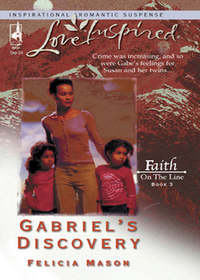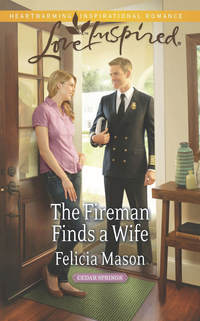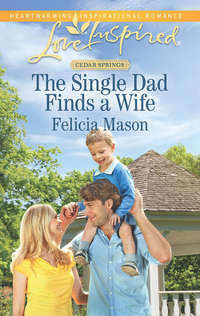
Полная версия
Sweet Harmony

Marcus grinned. “You are
something else, Dr. Kara.
But I live in the real world.”
Kara glanced toward his crew. “Really? I find it interesting that your contribution to the night’s discussion has been based solely on your celebrity. Is it possible, sir, that you’ve forgotten—if you’ve ever known—what’s it’s like to live like a real person? I doubt you’d be able to survive a month living like a normal person. Without,” she added with a nod stage left toward his entourage in the wings, “an army of people at your beck and call.”
“Is that a challenge, Dr. Spencer?” His voice was low, measured, deliberately taunting.
FELICIA MASON
is a motivational speaker and award-winning author. She’s a two-time winner of the Waldenbooks BestSelling Multicultural Title Award, has received awards from Romantic Times, Affaire de Coeur and Midwest Fiction Writers, and won the Emma Award in 2001 for her work in the bestselling anthology Della’s House of Style. Glamour magazine readers named her first novel, For the Love of You, one of their all-time favorite love stories, and her novel Rhapsody was made into a television film.
Felicia has been a writer as long as she can remember, and loves creating characters who seem as real as your best friends. A former Sunday school teacher, she makes her home in Virginia, where she enjoys quilting, reading, traveling and listening to all types of music. She can be reached at P.O. Box 1438, Dept. SH, Yorktown, VA 23692.
Sweet Harmony
Felicia Mason

I will sing of the mercies of the Lord forever:
With my mouth will I make known
Thy faithfulness to all generations.
—Psalms 89:1
For Pastor Lynn Howard,
who accepts calls from strangers in distress.
Thanks to Lee, Day and Carolyn,
who all know why.
Contents
Chapter One
Chapter Two
Chapter Three
Chapter Four
Chapter Five
Chapter Six
Chapter Seven
Chapter Eight
Chapter Nine
Chapter Ten
Chapter Eleven
Chapter Twelve
Chapter Thirteen
Chapter Fourteen
Epilogue
Letter to Reader
Chapter One
Kara Spencer was running late. Again. She managed to live by the clock with her patients and clients, yet when it came time for her own stuff, she was always rushing around as if she didn’t own a watch.
She grabbed her satchel, locked the car door and ran toward the side entrance to Bingham Hall. She yanked on the door. It didn’t budge.
“Arrgh!”
Any other time this door would be illegally propped open by summer school students who took shortcuts to get to the assembly room. Today when she needed to take the shortcut, it was locked.
Turning, she quickly assessed the options. Was the faster route across the lawn or around the front of the building? She glanced down at her shoes. Fifty bucks, on sale. It wasn’t as if they were designer originals. She dashed across the lawn.
As she ran down the hall, she pulled from her bag a mirror and a lipstick, hoping to get at least a moment to glance at her appearance before the start of the panel.
Three minutes later she stood at the door to the main auditorium. She caught her breath, applied the lipstick and shoved the tube and mirror back into her bag.
“Dr. Spencer has yet to arrive, so we’ll start without…” she heard the MC say.
Just her luck to have a punctual moderator. Kara pushed the door open. “I’m here.”
Two hundred heads turned.
Who in the world were all these people? Kara wanted to crawl under a rock. But she held her head high and made her way down one of the side aisles.
The moderator, one of the anchors from a Portland television station, smiled. “Welcome. We’re so glad you could join us. We were just about to begin.”
Kara ignored the note of annoyance in the broadcaster’s voice.
So much for making a good impression.
The TV personality indicated a spot for her to join three other panelists.
Kara took a seat at the table, nodding at the two men who rose when she approached. She knew Cyril Abercrombie, the local newspaper columnist, and had met Evelyn Grant, associate dean of the college’s School of Philosophy and Religion, in faculty meetings when she’d taught at Wayside College. Kara didn’t recognize the other man, and couldn’t quite see his name tent on the table, but he looked vaguely familiar. His angular profile showed a strong jaw covered in part by a black goatee. From this angle he was striking in a handsome but hard way.
He leaned forward and glanced over at her. Her breath caught. Handsome wasn’t the word for it. He was dynamic in that way all men aspired to, but few actually pulled off. He could be a prince in a foreign land, or the head of a multinational conglomerate.
Clearing her thoughts, she pulled a notepad and a stack of all-purpose brochures from her satchel. They listed information on referral services in town, warning signs of depression and tips on maintaining balance at home and in the workplace. She poured a glass of water and looked up. The moderator was patiently waiting for her to get settled. Kara truly wanted to die. Instead, she smiled and nodded. The moderator turned to the audience and completed her opening remarks.
Kara glanced at her notes, trying to remember if this was the panel about the role of religion and media in today’s society or the one about psychological influences of archetypes and stereotypes. Either could fit with these players. Cyril, who had a tendency toward snide remarks, could be a pain, but his credentials were up to snuff on either topic.
Who was that third guy, though? Another therapist? She’d obviously missed the introductions. Kara pulled out the correct letter of invitation, noted that the television anchor’s name was Belinda Barbara and that she, Cyril and Evelyn were the only listed panelists scheduled to talk about stereotypes. With a mental shrug Kara settled in for an hour of discussion. She’d catch his name during the question-and-answer period if the context didn’t provide it before then.
“Dr. Spencer, I’ll ask you the first question,” the moderator said.
For the next thirty minutes Kara fielded questions from the moderator, debated with Evelyn and had a flat-out disagreement with Cyril. Nothing new there. They’d gone head-to-head in dueling op-ed pieces in the newspaper. The fourth panelist didn’t seem to have much to say, and Kara wondered why perky Belinda didn’t pull him out more.
Then, as if reading her thought, the anchor paused. “And now,” she said, “we haven’t heard from our special guest.” She flashed a six-hundred-watt smile in his direction and Kara leaned forward trying to get a better look at the guy. Why was he singled out as being special?
In her work with the women’s shelter and even when she’d maintained an active practice, she impressed upon people the unique gifts each person offered themselves, the community and the world at large.
“Mr. Ambrose, do you think you have a responsibility to portray roles that debunk stereotypes?”
Ambrose?
The lightbulb finally flashed on in her head. No wonder he looked familiar. Giant twenty-four-by-thirty-six posters of the man papered a wall in her sister’s bedroom. He had to be Marcus Ambrose, the singer and movie star. Which would explain the big audience and the two TV satellite trucks she’d passed on the way in. Kara wondered if her sister Patrice— Marcus Ambrose’s biggest fan—was in the audience.
Kara also wondered how he’d contribute to the discussion, and leaned forward to hear him.
“Well, I find it interesting that Dr. Spencer and Dr. Grant come out on opposite ends of this argument. As for the roles I play, as you know, acting is just a sideline. I’ve had a couple of small parts,” he said with a self-deprecating but nonetheless charming shrug. “My first love is singing.”
The audience erupted in cheers and catcalls.
The anchor ate it up, encouraging them to heap adulation on the performer. “Maybe before we adjourn for the evening you’ll treat us to a little of that trademark soul.”
Kara rolled her eyes and exchanged a glance with Evelyn. Cyril was busy scribbling something in a slim notebook, probably his Sunday column. In a matter of moments the dialogue shifted from a panel discussion to a love fest about Marcus Ambrose.
Kara aimed to get the conversation back on course.
“Mr. Ambrose, what just happened here is a classic example of how we’ve allowed our culture to be overtaken with celebrity.”
“What did just happen, Dr. Spencer? Why don’t you enlighten us?”
A few snickers drifted up from the audience.
The snickers disarmed her. She glanced toward the audience, then cleared her throat and made her point. “One of the problems with the entertainment world today is that the focus is on the stars, the entertainers themselves, who are self-absorbed to the point of distraction, so much so that the real issues of the day go undiscussed. Unnoticed because they’ve been suffocated to death by frivolity. And on television,” Kara added with a nod toward Belinda Barbara, “the rule about ‘if it bleeds, it leads’ still apparently rules. At least, it does on the television news I’ve seen lately. So where does that leave the average American who is just trying to wade through the morass to find socially relevant commentary?”
“Reading my column, I hope,” Cyril interjected.
Marcus, Belinda and several people in the audience laughed. Even Evelyn cracked a smile.
“You’ve proven my point, Cyril. Everything in American society today is about a punch line, a sound bite, a high-speed Internet connection and the fastest drive-through service. When do we get to the main course, the serious matters?”
“I’ll have to agree with Dr. Spencer on this,” Evelyn said. “As a society we’ve completely lost touch with our spiritual and intellectual roots.”
“And you guys blame me for this?” Marcus said. “The only thing I claim responsibility for is giving people music to come home to, melodies to relax to. Music that makes it possible for them to declare their undying love for each other.”
“You tell ’em, Marcus!” someone yelled from the audience.
“Amen to that,” another voice said.
“And I find it interesting that you make such a blanket statement, Dr. Spencer. All entertainers are self-absorbed to distraction?
“If your lament held water,” Marcus said, his direct gaze focused solely on Kara’s, “there’d be no need for music or art or popular fiction. Those things aren’t necessarily meant to reflect the serious nature of our times,” he said, bracketing the word serious with air quotes. “Music, art and literature do, however, serve a purpose. A divine purpose, at that,” he added with a nod toward the theologian. “In the Psalms, David’s many chapters were odes to joy, psalms of praise and thanksgiving. Just as they do today, those psalms and the contemporary ones we find at the movies, in bookstores and even in popular music help us cope with those harsh realities you want us to dwell on.”
Applause erupted from the audience. Belinda Barbara nodded sagely, completely in his corner.
Kara was so stunned she didn’t know what to process first. The fact that he’d used the words lament and literature and Psalms and odes to joy, or that he’d managed to best her at her own game—and with such effortless style. Who was this guy?
Her mouth opened, but no words came out. She snapped it shut, trying to think of a comeback. Since when did R&B singers know anything about the Bible or literature? Next thing you knew he’d be spouting Nietzsche or Cervantes.
“Dr. Spencer, do you have a rebuttal?”
“No,” someone from the audience hollered. “’Cause he’s right and she knows it.”
Kara blinked, then got herself together. “As a matter of fact, I do have a rebuttal, Mr. Ambrose. You won’t find any argument here about the relevance of, or the need for, the arts. I’m a great supporter of the arts. But tell me, sir, how ‘Baby, I’m gonna make you sweat and moan’ advances our cultural interests?”
The audience roared—people were on their feet whooping it up. Even Belinda let out a bark of laughter. Marcus, himself chuckling, just pointed his finger at her and said, “You got me there, baby.”
His smooth baritone made her skin tingle, and Kara got a clear understanding of what made him so wildly popular with women in Patrice’s age group—with women period, she amended. And if she did a reality check and was honest with herself, she’d have to add Kara Lynette Spencer, Ph.D., to that number.
Some people in the back of the audience burst into the refrain of the Ambrose hit, and it took the moderator a few minutes to regain control. When she did, she opened the floor for questions.
“There are two microphones located at the front of the aisles. Please state your name, your question and which panelist you’d like to respond.”
Not surprisingly, most of the questions were directed toward Marcus Ambrose and had little to do with the topic they were supposed to be discussing.
“When’s your next CD coming out?”
“Can I get your autograph?”
“I’m a singer and want to know how to break in to the industry.”
Kara sat back with her arms folded. Instead of wasting her time at this homage to Marcus Ambrose she could be at home working on the grant application that was due next week. But, as usual, she’d managed to commit to more projects than she had time to deal with. And it was just her luck that Marcus Ambrose had crashed this particular event.
She glanced at her wristwatch, wondering how much longer it would take to wrap this up.
“Dr. Spencer?”
She looked up. “Yes?”
“There was a question for you,” Belinda Barbara said.
“I’m sorry. Would you repeat it, please?”
A young man of about twenty stood at the microphone. A backpack slung over a shoulder and the WC T-shirt pegged him as a student at Wayside College. “I want to know what makes you as a psychologist think that everything in the world needs to be psychoanalyzed. Sometimes things, like Marcus Ambrose’s music, are just there. We don’t need a deeper meaning.”
Kara bit down a spark of temper. She lifted the piece of paper that outlined the topic of the night’s discussion. “I came here, albeit late, and I do apologize for that,” she added in an aside. “I came here to discuss the psychological influences of archetypes and stereotypes. That the discussion veered away from that topic was not in my control. From a psychological perspective, however, there was obviously a need for the community of those gathered here this evening to address these issues. And I’m more than happy to accommodate the puerile fascinations of an audience inclined to reduce the intellectual discourse to that level.”
The television anchor frowned. The college student looked perplexed. From the corner of her eye Kara saw Marcus grin.
Kara snapped her notepad closed and clasped her hands together on top of it.
“I agree,” Evelyn Grant said.
For two beats, no one spoke. No one in the audience even coughed.
“Well,” Belinda said, filling the awkward space, “are there any other questions?”
“I have one.”
The slow drawl shimmied along Kara’s skin and settled somewhere it had no business being. She tried to ignore her response to his voice.
“What is that, Mr. Ambrose?” she asked.
“Why are you so uptight?”
Applause erupted from parts of the audience and laughter from the wings where his entourage congregated.
Kara realized her mistake. She’d let her temper get to her. And she’d been doing so well in that area lately. Tonight, though, she’d come in late, rude and out of control—all because she didn’t have her own stuff together. That’s what came of trying to concentrate on too many projects.
“We’re waiting,” someone from the audience yelled out.
Taking a deep breath, Kara rose. Evelyn lifted the microphone from its stand and handed it to her.
“Thanks. First, I owe this young man an apology,” she said, pointing to the student who’d asked the last question.
He lifted his hands in an “all right” gesture.
“I think I proved the point of this panel discussion, don’t you?”
He didn’t look so sure then.
Kara gestured toward her fellow panelists. “We were here tonight to talk about stereotypes. We all have them. Many of you hold fast to the concept of a therapist being someone like Freud who wants to stretch you out on a couch and make everything about your mother. Right?”
People nodded. She saw Marcus Ambrose lean forward regarding her.
“The other stereotype people have about therapists and analysts is that they talk way over your head. Ms. Barbara, wouldn’t you agree?”
“Er, well, yes. I’ve done several interviews with psychiatrists and psychologists. I had to get a dictionary for the translation.”
“Then they weren’t doing their jobs and they were simply trying to impress you. A therapist is someone who can relate to you on your level, whatever that level is, whatever your experience is. I needed to make my point,” she said again to the student. “Your question gave me a good segue. I hope you didn’t mind.”
He shook his head.
Kara smiled and reached for the brochures she’d pulled from her bag. “I have some things here for anyone who’d like one. They burst some of the stereotypes you may have about therapy and counseling. The resources available to you here in Wayside are approachable and reasonable.
“Now,” she said, taking her seat and turning her attention back to Marcus. “Taking off one hat and putting on another. If you think I’m uptight, Mr. Ambrose, maybe it’s because you have some unresolved issues with strong, independent women. Would you like to sit on my couch and talk about them?”
People laughed, and Kara gave an internal sigh of relief that she’d been able to defuse some of the negative energy she’d created.
Marcus grinned. “You are something else, Dr. Kara. But I live in the real world.”
Kara glanced toward his crew. “Really? I find it interesting that your contribution to the night’s discussion has been based solely on your celebrity. Is it possible, sir, that you’ve forgotten—if you’ve ever known—what it’s like to live like a real person? Every one of the people in this room has something to contribute to society. Your contribution, though it may reach thousands—”
“Millions,” he interjected.
“—of people who tune in to the radio, buy your albums—”
“CDs.”
“—or watch you on the big screen, in no way makes you better than everybody else. It’s what you do. And what you do is so far removed from the real world that I doubt you’d be able to survive a month living like a normal person. Without—” she added with a nod stage left toward his entourage in the wings “—without an army of people at your beck and call.”
“Is that a challenge, Dr. Spencer?” His voice was low, measured, deliberately taunting.
“You can take it for whatever you want, Mr. Ambrose. My point has been made.”
“I accept your challenge,” he said.
She faltered. “I beg your pardon?”
“On one condition.”
Kara looked around, surprised to find that she was standing up with two TV cameras locked on her, and that everyone in the audience seemed on the edge of their seats. What had she just done?
“You claim I don’t live in the real world, Dr. Spencer. Well, I posit that you don’t, either.”
Had he just correctly used the word posit in a sentence?
A man approached one of the floor microphones and addressed first Kara, then Marcus. “I don’t think either one of you have a clue. With all those letters after your name, you’re so high up in your ivory tower that you must constantly suffer nosebleeds at that altitude. And you’re just another brother pretending to be one of the people. At the end of the day, though, you go home to your mansion and pool in the Hollywood hills.”
Kara’s eyes narrowed. “I thought I made it clear that I was making a point about the stereotypes people have.”
“You made your point,” the man said. “But I think I made mine, too.”
“For the record,” Marcus said, “I don’t live in the hills of Hollywood.” He smiled. “And Wayside is as good a place as any to prove both of you wrong. I’m here for a month for the music and film festival. We’ll use that time to see just whose theory is true. Mine or Dr. Kara’s.”
Theory? What theory? Kara was starting to panic.
“Well, ladies and gentlemen,” Belinda Barbara cooed. “What an exciting conclusion to our evening. The gauntlet has been thrown down and the contest declared between Dr. Spencer and our special guest, Mr. Marcus Ambrose.”
Gauntlet? What gauntlet?
“Wait a minute,” Kara said.
But no one heard her over the TV personality’s voice and the excited buzz in the auditorium.
“Let’s give all of our panelists a big hand.”
Kara didn’t hear the applause. She didn’t hear the speculative murmurs from the audience. And she didn’t hear Cyril’s questions to her. The only thing Kara Spencer heard was the roar of blood rushing through her head. She plopped into her chair.
What had her temper gotten her into now?
Chapter Two
Marcus signed autographs for the fans, chatted up the print journalists and was aware of Kara Spencer’s every move. He knew she was itching to give him what for. With a jolt of surprise Marcus realized he relished the idea of a direct confrontation with her. No one, not even Nadira, his personal assistant—who knew him best—dared challenge him the way Kara had. He loved his fans—they’d helped make him what he was today. And he’d yet to hear an original question from a reporter. Kara Spencer, on the other hand, didn’t fawn. She didn’t pull any punches. She didn’t seem to even like him very much.
And she was headed his way to tell him just that.
Looking forward to the clash, he smiled as he signed a grocery-store receipt. The fan beamed.
“Hey,” he said, pointing at the rectangular piece of paper. “It looks like you forgot to buy eggs.”
The woman twittered, gushed about his latest release and asked if she could have a hug. Marcus obliged. A photographer snapped a picture. Through it all he kept an eye on Kara Spencer. Over the fan’s shoulder he saw someone pull Kara aside, asking a question. Looking distracted, she answered by shaking her head. He saw her say the word no. Several times. Marcus grinned.
A few minutes later, though, she tapped him on the shoulder. Without looking he knew fire danced in her eyes.
“I’d like a word with you, Mr. Ambrose.”
Marcus turned and winked at her. “Not now. Smile for the cameras.”
His face came close to Kara’s ear, so close he could smell the scent of her perfume.
Then, before she had time to get her bearings, three microphones were thrust in Kara’s face and the glare of klieg lights blinded her.
“So what’s at stake in this game?” a curious reporter asked. “What does the winner get besides bragging rights?”
He smiled down at her and in that moment Kara finally understood the appeal of a sexy voice on the radio and a poster on a wall. No wonder Patrice and millions of other women were so enamored with Marcus Ambrose. When he smiled it was honest and focused and devastatingly male.
Kara cleared her throat. Marcus put his arm around her waist and she almost jumped out of her skin.








